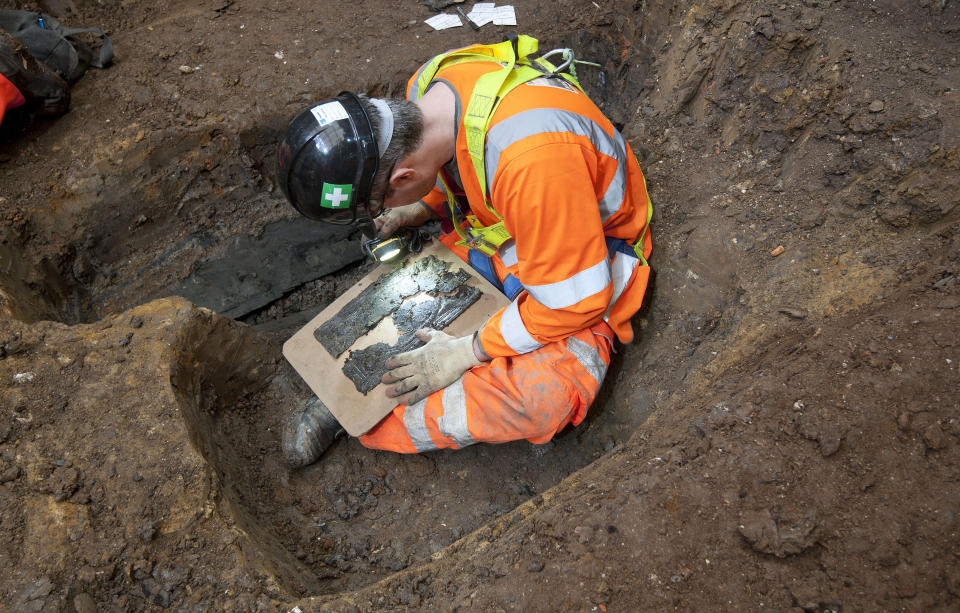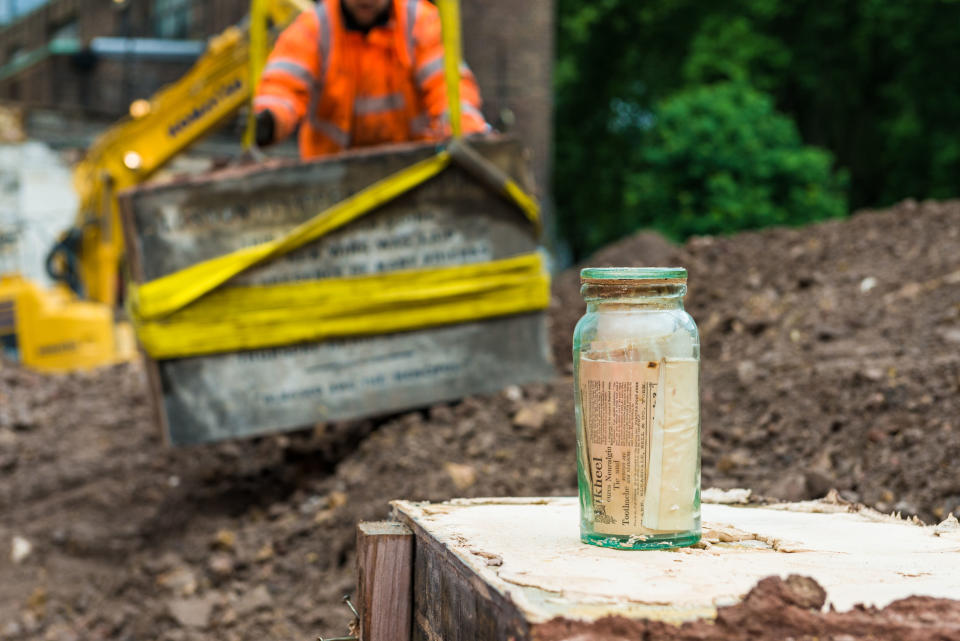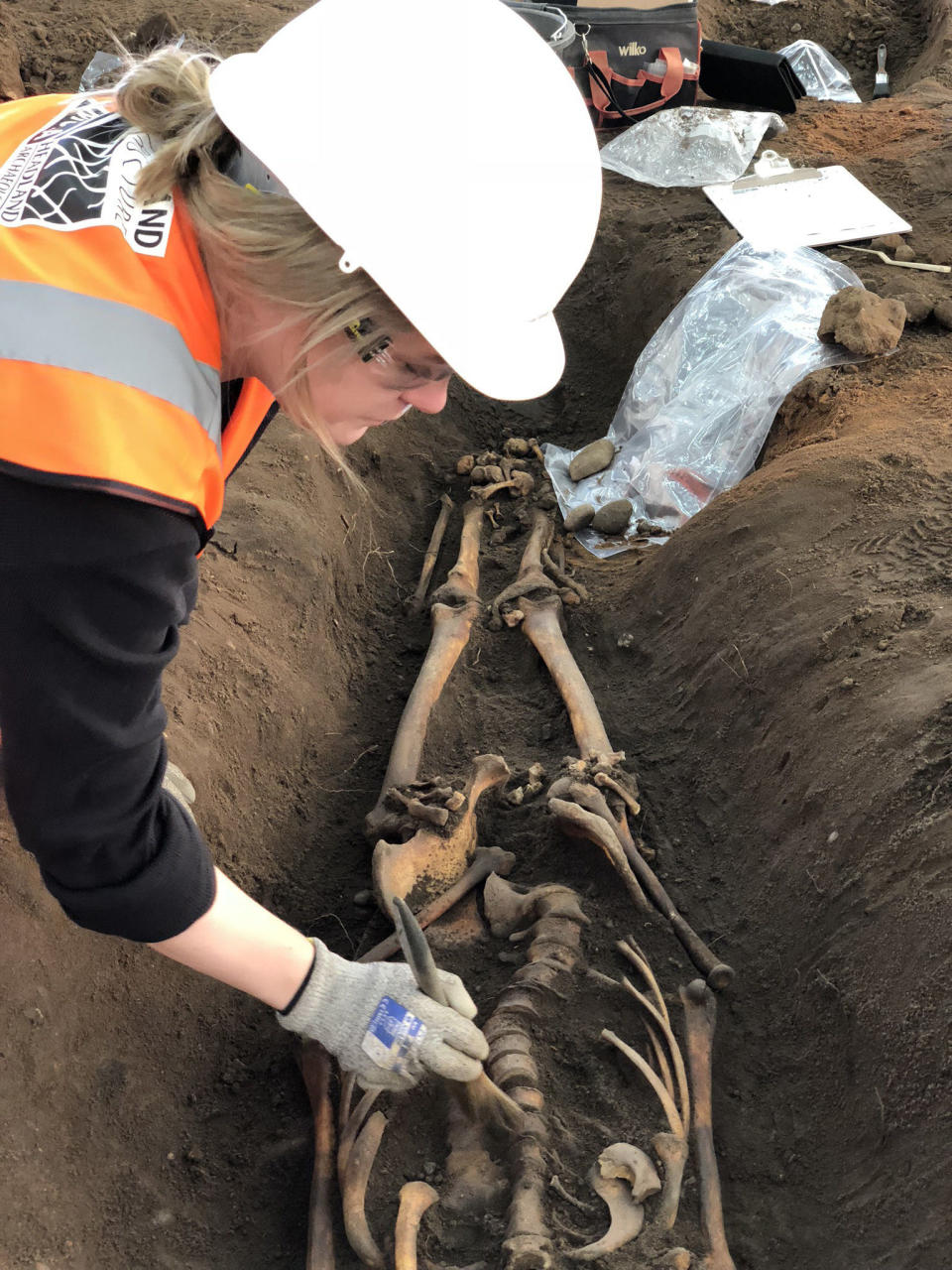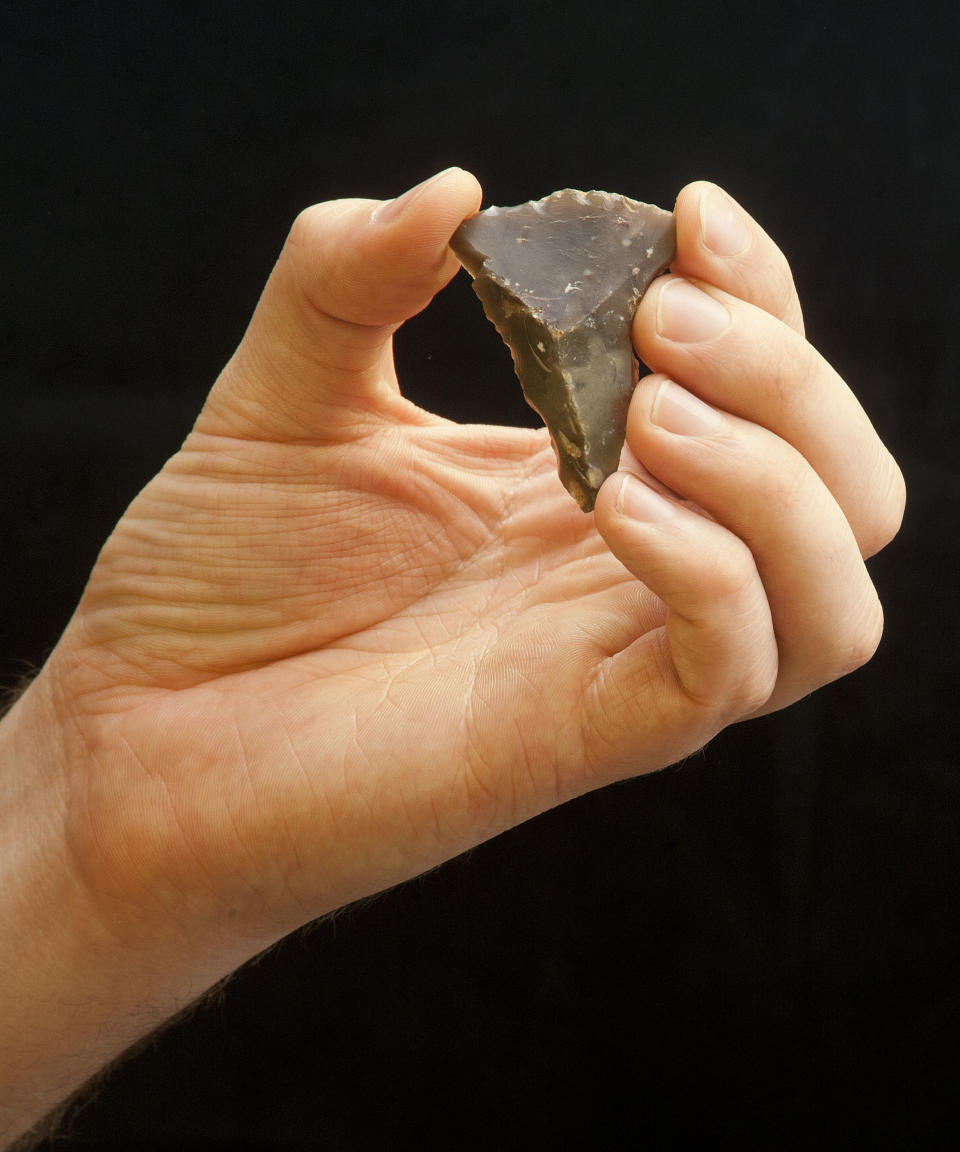'Largest ever' archaeological dig into centuries of British history starts along HS2 route
Europe’s largest archaeological dig is starting and it’s set to involve 10,000 years of British history, at least 45,000 skeletons, more than 60 sites, and 150 miles – all along the UK’s new HS2 route.
More than a thousand archaeologists are delving into centuries of British history along the 150-mile High Speed rail route from London to the West Midlands.

Sites include a burial ground at St James’s gardens next to Euston station, which is believed to hold at least 45,000 skeletons, and is expected to be the largest archaeological excavation of human remains from 18th and 19th century Britain.
Others include a prehistoric hunter-gatherer site on the outskirts of London, a Roman British town in Fleet Marston, Aylesbury, a 1,000-year-old demolished medieval church and burial ground in Buckinghamshire and a WW2 bombing decoy in Lichfield.

The archaeologists will explore more than 60 separates sites dating back to prehistoric and Roman times, as well as sites from the Industrial Revolution and the Second World War.
Neolithic tools, medieval pottery and Victorian time capsules have already been discovered along the route.
MORE: Ryanair passenger apologises for tirade at 77-year-old widow – but says he’s not racist
MORE: A young adult is diagnosed with an STI every four minutes in England, shocking new figures reveal
Mark Thurston, HS2 chief executive, said: “Before we bore the tunnels, lay the tracks and build the stations, an unprecedented amount of archaeological research is now taking place between London and Birmingham.
“This is the largest archaeological exploration ever in Britain, employing a record number of skilled archaeologists and heritage specialists from across the UK and beyond.”

A four-part documentary on the history of Britain that is exposed by the project is set to air on the BBC in 2019/2020.
Patrick Holland, BBC Two controller, said: “This is a major series following this unprecedented archaeological project.
“The HS2 digs promise to reveal secrets throughout a vast timeline of British history and I am delighted that BBC Two will be following the journey.”

Tom McDonald, head of commissioning at the BBC’s Natural History and Specialist Factual unit, added: “It’s thrilling to be there from the very start of what is unquestionably one of the most significant archaeological endeavours in British history.
“It promises to make us re-interrogate what we think we know about British history and give us an extraordinary and privileged insight into the past.”
Duncan Wilson, chief executive of government heritage body Historic England said: “With the building of HS2 comes a once-in-a-generation opportunity to improve our understanding of how people have shaped England’s landscapes over thousands of years, from the first prehistoric farmers through Roman and Saxon and Viking incomers to the more recent past.”

 Yahoo News
Yahoo News 

